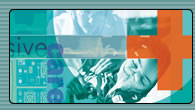|
|
Daily Life
 |
|
Daily Living with Paraneoplastic
Life is complicated enough. Add in cancer and dealing with the disabilities of a paraneoplastic neurological disorder and it can seem overwhelming at times. On this page, we offer advice and suggestions for how to make daily life a little easier.
Get Support
No one should have to face a paraneoplastic neurological disorder alone. Connecting with others who are experiencing the same things you are helps. The IPA runs an email support group for people affected by paraneoplastic neurological disorders. It's a great place to ask questions, share what's going on in your life, and connect with people who understand. To join, click here:
PCD-L
Depression is very common for paraneoplastic patients; it may even be a physiological effect of many paraneoplastic neurological disorders. Don't struggle with depression alone. Discuss your feelings with your family and friends, and ask your doctor for help. The American National Institute of Mental Health is an excellent source of information on depression and treatments. The the Befrienders is an organization that offers support and counseling in more than 40 countries for those contemplating suicide.
Get the Right Tools
Learning to live with altered capabilities can be frustrating. But, there's no need to reinvent the wheel every time. An occupational therapist can help you figure out how to stay as independent as possible using tools and equipment adapted to various disabilities. Some great online sources for everything from eating utensils and dressing aids to wheelchairs and walkers can also be found at these sites (many more can be found by doing a Google search):
Enable Mart is a good source of equipment to make computers more accessible to paraneoplastic patients. They offer items like alternative keyboards for folks with limited hand control.
Big Keys, Info Grip, and Orbitouch are some other sources of various accessible computer equipment.
Elder Corner is a good source for items that make life around the house easier, including special eating utensils, dressing aids, and bathroom safety equipment.
Disabled World is an online mall with many links to retailers around the world. Disability UK is a European source for adaptive equipment.
WheelChairNet is good place to start if you're shopping for a wheelchair.
The Illinois Assistive Technology Program has an extensive listing of companies and catalogs offering equipment and tools to help with daily living, communication, and other aspects of living with a disability. If you live in Illinois, The IATP will also work with you to help you pinpoint what you need and has equipment that you can try out on loan.
If you're having difficulty with speech, an assisted communications device can help you communicate with others. There are a wide variety of ACD's available.
To find out what's available, start at the USSAAC website. Other useful resources for information on assisted communications include AAC Institute, The International Society for Augmentative and Alternative Communication(ISAAC). The ISAAC has links to information in a variety of languages.
Stay Active & Fit
Staying as active and fit as possible is important both to your physical health and your mental health. Anecdotal evidence from long-term paraneoplastic patients indicates that regular exercise and activity leads to greater independence and control over neurological deterioration. Although working with a physical therapist is ideal, if that is not possible, it is still important to do as much as you safely can.
The National Center on Physical Activity and Disability has a terrific site on how to stay fit with disabilities. There’s a wealth of information here - while on the site, be sure to check out the seated fitness and strengthening exercise videos (free online) that people can do while seated.
Stay Informed
New Mobility magazine is a magazine dedicated to discussing issues related to movement disorders.
The National Organization on Disability is a great website on dealing with all aspects of living with a disability.
The National Rehabilitation Association offers information on topics related to rehabilitation issues.
Other sources of information on paraneoplastic disorders, cancer, and dealing with a disability can be found on our Resources page.
|
|
 |


